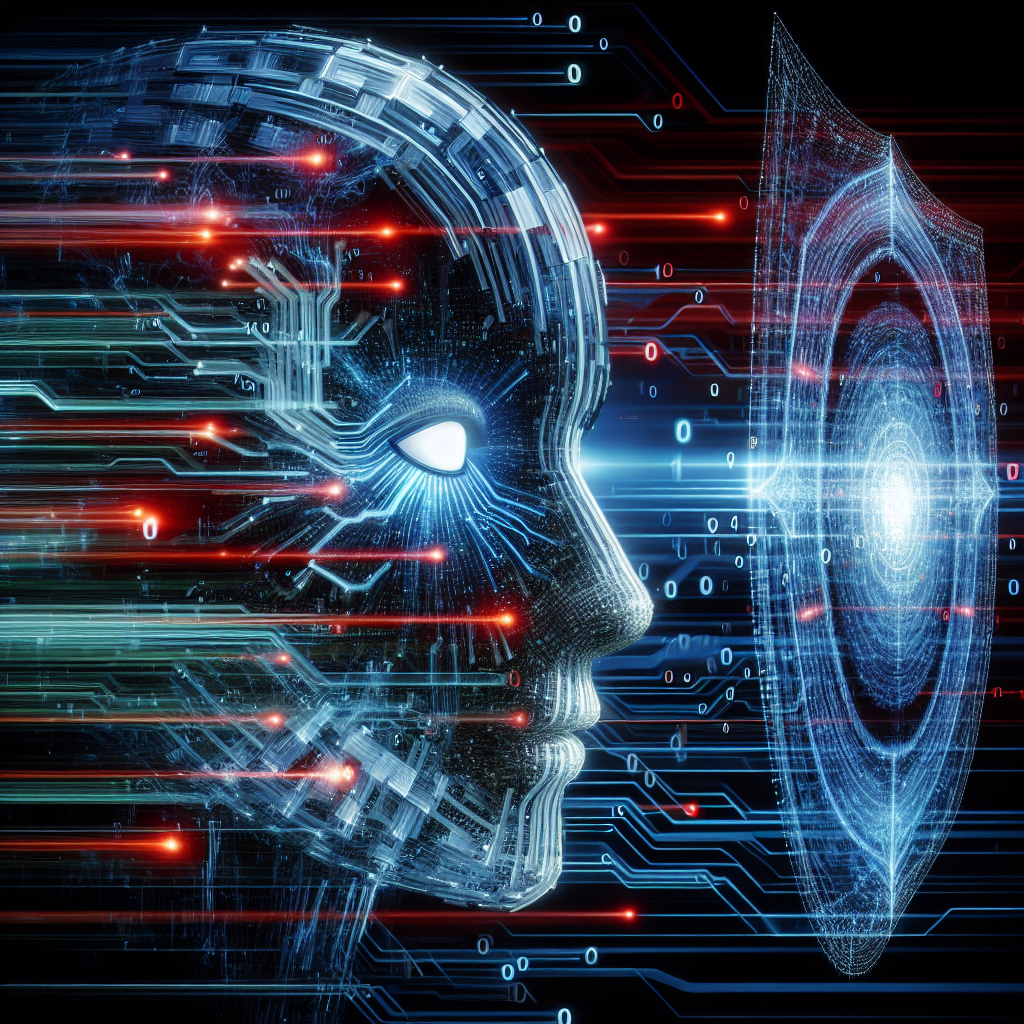In today’s digital age, the threat of cyber attacks is ever-present. With the increasing sophistication of hackers and the growing reliance on technology, organizations are constantly at risk of being targeted by malicious actors. However, the rise of artificial intelligence (AI) has provided a powerful tool in the fight against cyber attacks.
AI has the ability to analyze vast amounts of data at incredible speeds, making it an invaluable resource in detecting and preventing cyber attacks. By leveraging machine learning algorithms, AI systems can identify patterns and anomalies in network traffic, flagging potential threats before they can cause damage.
One of the key advantages of AI in cybersecurity is its ability to adapt and learn from new threats. Traditional cybersecurity measures rely on pre-defined rules and signatures to detect malicious activity, making them less effective against emerging threats. AI, on the other hand, can continuously learn and evolve its detection capabilities based on new information, staying ahead of cyber criminals.
AI-powered systems can also automate the process of threat detection, allowing organizations to respond to potential attacks in real-time. By quickly identifying and isolating compromised systems, AI can help prevent the spread of malware and minimize the impact of cyber attacks.
In addition to detecting threats, AI can also be used to proactively prevent cyber attacks. By analyzing historical data and identifying vulnerabilities in a network, AI can help organizations strengthen their defenses and reduce the likelihood of a successful attack.
Furthermore, AI can assist in incident response by providing valuable insights into the nature of an attack and helping security teams prioritize their resources. By quickly identifying the source of an attack and the techniques used by hackers, AI can streamline the response process and minimize downtime.
Overall, the power of AI in detecting and preventing cyber attacks cannot be overstated. By leveraging machine learning algorithms and advanced analytics, organizations can enhance their cybersecurity posture and stay one step ahead of cyber criminals.
FAQs:
Q: How does AI detect cyber attacks?
A: AI uses machine learning algorithms to analyze network traffic and identify patterns and anomalies that may indicate a cyber attack. By continuously learning and evolving its detection capabilities, AI can quickly flag potential threats and alert security teams.
Q: Can AI prevent all cyber attacks?
A: While AI is a powerful tool in the fight against cyber attacks, it is not foolproof. Hackers are constantly evolving their tactics, and no system can guarantee 100% protection. However, AI can significantly reduce the likelihood of a successful attack and help organizations respond more effectively to threats.
Q: How can organizations leverage AI for cybersecurity?
A: Organizations can integrate AI-powered security solutions into their existing infrastructure to enhance their cybersecurity posture. By automating threat detection, strengthening defenses, and streamlining incident response, AI can help organizations stay ahead of cyber threats and protect their valuable data.
Q: Is AI expensive to implement for cybersecurity?
A: The cost of implementing AI for cybersecurity can vary depending on the size and complexity of an organization’s network. While there may be upfront costs associated with acquiring and integrating AI-powered security solutions, the long-term benefits of enhanced protection and reduced risk of cyber attacks often outweigh the initial investment.
Q: What are some examples of AI-powered cybersecurity solutions?
A: There are a variety of AI-powered cybersecurity solutions available on the market, including threat detection platforms, endpoint security tools, and network monitoring systems. These solutions leverage machine learning algorithms to analyze data, detect threats, and automate incident response, helping organizations enhance their cybersecurity defenses.

